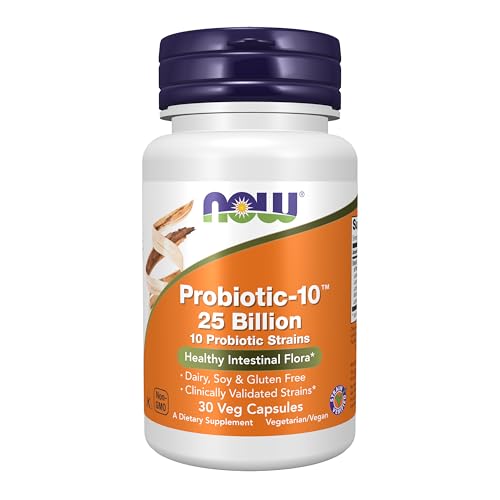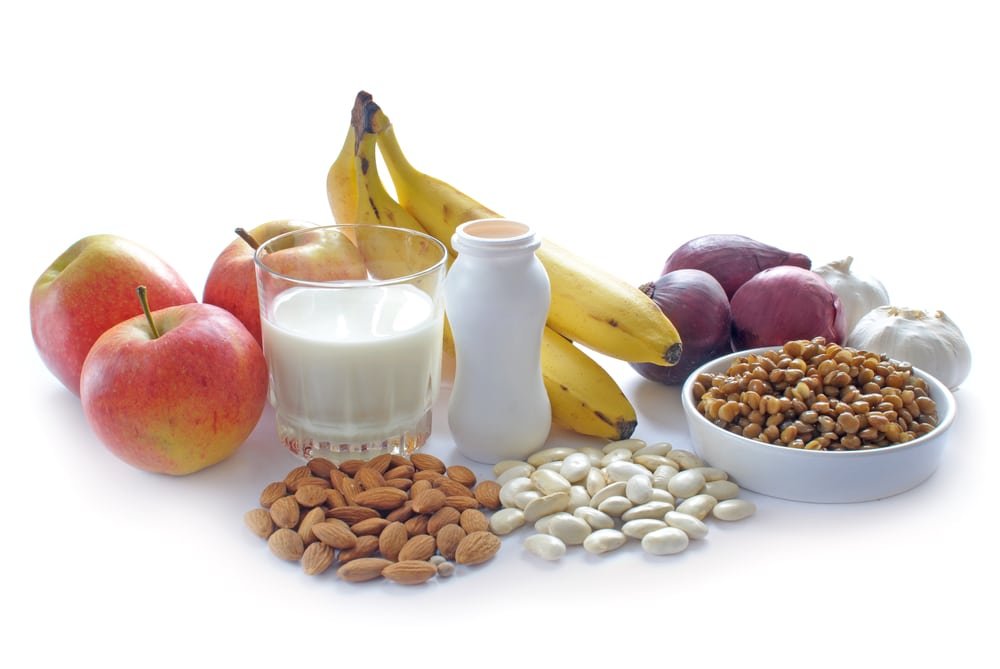Probiotics are essential for the wellbeing of your gut and entire body. Some of the top Probiotics foods source includes apples, almonds, yogurt, bananas, onions, apple cider vinegar, tempeh, dark chocolate and miso soup.
Did you know that the bacteria living in your body outnumber the body cells by a ratio of 10: 1? It’s true, and the majority of them reside in your gut. There’s no need to freak out since most of those bacteria are pretty harmless. Having the right kind of bacteria in your body is extremely important as it helps bring along numerous health benefits, including weight loss, better digestion, improved skin health and enhanced immunity. This leads us to the topic of probiotics.
What Are Probiotics?
Probiotics are good bacteria that are either very similar to or are the same as bacteria already present in our bodies. Our lower digestive tract alone houses a diverse and complex community of these bacteria. The body is an ecosystem comprising millions of bacteria that aid digestion, manufacture food for the body, kill unfriendly bacteria and maintain balance with fungi. When our ecosystem is out of balance (when the “bad” bacteria outweigh the “good” bacteria), the immune system may fail to function properly, yeast infections may occur and you may have problems with your digestive system. Probiotics, a dose of good bacteria, are a recently recognized as an excellent treatment for some of our health problems.
Why are Probiotics Important for Your Health?

Taking proper care of your gut, and the good bacteria that live in there may be one of the best things you can do for your health. If you are not convinced, let’s take a look at top 5 ways explaining how probiotics benefit your overall health.
1. Balance the Good Bacteria in Your Digestive System
Probiotics include friendly bacteria, which are microorganisms that offer health benefits when consumed. These health benefits are believed to stem from the capability of probiotics to restore the natural balance of bacteria present in the gut.
An imbalance indicates that there are more “bad” bacteria as compared to “good” bacteria. This can be the result of an illness, a poor diet, or medications like antibiotics, and much more.
Consequences can include allergies, digestive problems, health issues, and obesity among other troubles.



2. Prevents and Treats Diarrhea
Probiotics are well-known for their ability to help reduce the intensity of diarrhea and even prevent it. Diarrhea is a common side effect of consuming antibiotics and happens because antibiotics have a tendency to adversely impact the balance of friendly and bad bacteria present in the gut. Various studies suggest that consuming enough probiotics can reduce the onset of diarrhea associated with the use of antibiotics.
3. Improve Certain Mental Health Issues
An increasing number of studies associate a healthy gut to an improved mood and a better mental health. Both human and animal studies conclude that probiotic supplements can improve certain mental health conditions.
A review involving 15 studies affirmed that supplementing with Lactobacillus and Bifidobacterium for 1 to 2 months can alleviate symptoms of depression, anxiety, OCD, and autism.
Besides, a study comprising 40 patients showed that taking probiotic supplements for 2 months decreased levels of depression, along with levels of C-reactive protein and hormones like insulin, as compared to people who didn’t take a probiotic.
4. Improve Your Cardiovascular Health
Probiotics are believed to improve the health of your heart by reducing your bad cholesterol and blood pressure. Various lactic-acid producing bacteria may decrease cholesterol by processing bile in the gut. Bile is a natural fluid that is mostly comprised of cholesterol, and it aids in digestion. When probiotics break down bile, they prevent it from getting reabsorbed in the gut, where it can enter the bloodstream as cholesterol.
Five studies concluded that consuming probiotic-rich yogurt for 2 to 8 weeks decreased total cholesterol level by 4% and bad cholesterol by 5%. Another study carried out over a span of 6 months failed to find any changes in overall or LDL cholesterol, but the researchers did find a slight spike in “good” (HDL) cholesterol.
Taking enough probiotics might also lead to lower blood pressure, as confirmed by a review of nine studies. Although the change was only modest, it was definitely there.
5. Reduce the Intensity of Eczema and Different Allergies
Certain probiotic strains are believed to decrease the intensity of eczema in infants and children. A study found that symptoms of eczema improved in infants who were fed probiotic-infused milk, as compared to those infants who were fed regular milk.
Some probiotics may also help reduce inflammatory reactions in people who have dairy or milk allergies. However, there is not enough research to back this evidence.
Top 5 Probiotics Foods Source

1. Yogurt
Perhaps the most popular top probiotics foods is yogurt – Greek or live-cultured, made from the milk of sheep, goats or cows. Yogurt in most instances can rank at the top of probiotic foods since it comes from grass-fed animals and hasn’t been pasteurized. When buying yogurt, it is recommended that you look for three things: that it is organic, comes from sheep or goat’s milk and is grass-fed.
2. Apple Cider Vinegar
Apple Cider Vinegar is excellent for managing blood pressure, diabetes, weight loss, and cholesterol, among other numerous benefits. Plus, it provides the body with a good dose of probiotics.
3. Tempeh
Another Probiotics foods source is Tempeh. This Indonesian fermented soybean product is another great source of probiotics. You can consume tempeh in its raw state or by boiling it and consuming it with miso soup. You can also use it as a replacement for meat in a stir-fry
4. Dark Chocolate
Possibly the most appetizing food on the list, dark chocolate packs naturally occurring probiotics and therefore makes an excellent addition to your diet. Make sure you buy raw cacao bars that have at least 70% cacao.
5. Miso Soup
Miso is another Probiotics foods source. Miso soup is a combination of water and soybean paste, along with optional seaweed and onions added to it. Even though it is loaded with probiotics, miso soup is also high in salt content, which is why it shouldn’t be consumed too often.
Conclusion
While natural friendly bacteria are already present in your body, probiotics can be obtained from various food sources and supplements. Doctors normally recommend them to people with digestive troubles. And owing to their newfound popularity, you can find them in practically everything, from yogurt to chocolate. If you find yourself experiencing side effects related to digestion (abdominal discomfort and gas) for more than a few days, immediately consult your doctor.
In people with compromised immune systems, probiotics may result in serious infections. This includes people with AIDS, HIV, and other similar conditions.



Join the 7‑Day “Better Gut” Plan
Pop in your email and we’ll send Lesson 1 + the printable list.







